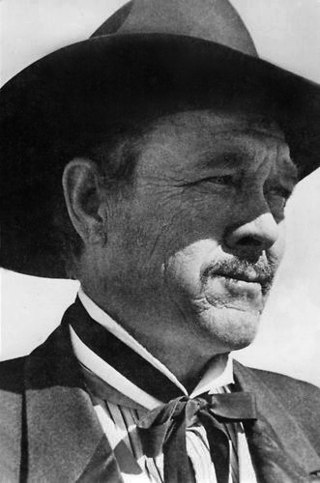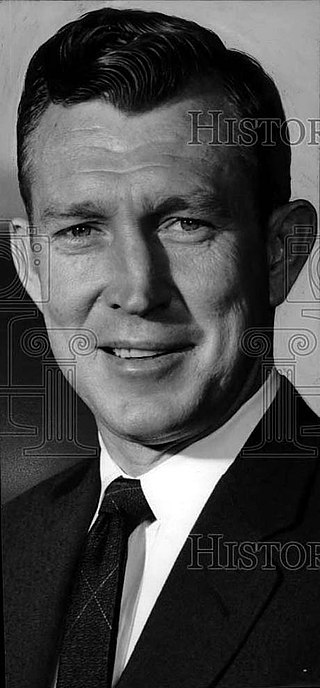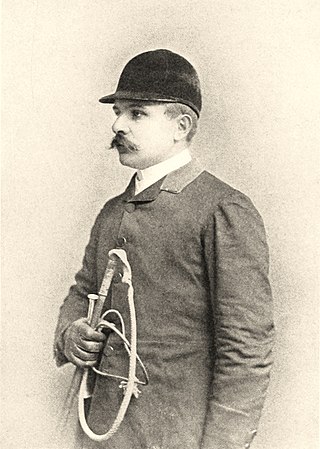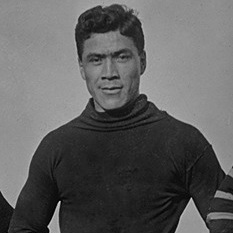Related Research Articles

Francis Benjamin Johnson Jr. was an American film and television actor, stuntman, and world-champion rodeo cowboy. Johnson brought authenticity to many roles in Westerns with his droll manner and expert horsemanship.

Waite Phillips was an American petroleum businessman who created a fully integrated operation that combined petroleum producing, refining and marketing. With headquarters in Tulsa, Oklahoma, he also developed several office complexes and engaged in banking and ranching. Phillips was a philanthropist for both local Tulsa institutions and national causes. In Tulsa he built a 72-room mansion for his residence, which he later donated to the city; it became the Philbrook Museum of Art. He gave 127,000 acres (510 km2) of his favorite ranch in New Mexico to the Boy Scouts of America, together with an office building as part of its endowment. The ranch is now Philmont Scout Ranch, one of the largest youth camps in the world. Phillips also made a substantial bequest to the University of Southern California, which named a building after him.

Kenny Dale Monday is an Olympic gold medalist and three-time All-American wrestler from Oklahoma State University. He began wrestling at age six at a YMCA after-school program and grew up idolizing Olympic wrestler Wayne Wells. Monday is a three-time Olympian.

Henry Payne “Hank” Iba was an American basketball coach and college athletics administrator. He served as the head basketball coach at Northwest Missouri State Teacher's College, now known as Northwest Missouri State University, from 1929 to 1933; the University of Colorado Boulder from 1933 to 1934; and the Oklahoma State University–Stillwater, known as Oklahoma A&M prior to 1957, from 1934 to 1970, compiling a career college basketball coaching record of 751–340. He led Oklahoma A&M to consecutive NCAA basketball tournament titles, in 1945 and 1946.

Glenn Dobbs Jr. was an American professional football player in the All-America Football Conference (AAFC). A skilled tailback, quarterback, punter and return specialist, Dobbs was named the AAFC's MVP in 1946. After sitting out the 1950 season with a knee injury, Dobbs was persuaded to come out of retirement to play with the Saskatchewan Roughriders of the Western Interprovincial Football Union (WIFU), forerunner of the Canadian Football League (CFL). In 1951 Dobbs was named the Most Valuable Player of the WIFU. Dobbs played college football at the University of Tulsa, where he was later head football coach from 1961 to 1968 and athletic director from 1955 to 1970. He was inducted into the College Football Hall of Fame as a player in 1980.
Robert M. McFarlin was an American oilman, cattle rancher, philanthropist, and businessman who is best known for amassing a fortune by drilling for oil near Glenpool, Oklahoma, with his nephew and son-in-law, James A. Chapman. He was among the early pioneer oilmen who established the state of Oklahoma as a center of the oil industry in the early part of the 20th century.

Thomas Hitchcock was one of the leading American polo players during the latter part of the 19th century and a Hall of Fame horse trainer and owner known as the father of American steeplechase horse racing.

Albert Andrew "Ex" Exendine was an American football player, coach, and lawyer. He played college football at the Carlisle Indian Industrial School where he was an All-American end. Exendine served as the head football coach at Otterbein College (1909–1911), Georgetown University (1914–1922), the State College of Washington—now known as Washington State University (1923–1925), Occidental College (1926–1927), Northeastern State Teachers' College—now known as Northeastern State University (1928), and Oklahoma Agricultural and Mechanical College—now known as Oklahoma State University (1934–1935). He was also the head baseball coach at Oklahoma A&M from 1932 to 1933, tallying a mark of 19–13. Exendine was inducted into the College Football Hall of Fame as a player in 1970.
John C. Oxley, a.k.a. "Jack", is an American oilman, horse breeder and polo player.
Julian Hipwood is a British polo player and coach.
Willis L. Hartman was an American polo player.

Cecil Smith was an American rancher and polo player.
Stephen M. Gose is an American oilman and polo player.
William Kelly Warren Sr. was an American businessman and philanthropist who founded the Warren Petroleum Corporation of Delaware in 1922. He and his company soon became specialists in the production and marketing of liquefied petroleum gas, a byproduct of petroleum refining and natural gas purification. Warren sold his company to Gulf Oil Corporation in 1953 for $450 million, the largest such merger in the energy industry up to that time. Warren then turned his attention to philanthropy and established the Saint Francis Hospital system in Tulsa.
The Gulfstream Polo Club was a polo club in Lake Worth, Florida. Since 1923, Gulfstream Polo Club was one of the most prominent polo clubs in North America, particularly during the Florida season (December–April). Gulfstream was managed by Marla Connor for 18 years until it closed in May 2016 at the end of the polo season. Throughout its long history it offered a wide array of tournaments, with 4, 6, and 10 Goal Leagues as well as Ladies Tournaments.
James P. Mills (1909–1987) was an American investment banker, throughbred owner, polo player and philanthropist.
John Smith "Jack" Zink, founder of Zeeco, Inc., was an American engineer who received 35 patents for his inventions in the field of combustion, and was also known for his achievements and contributions in business, auto racing and charitable enterprises.
Charles Schusterman was a Tulsa American businessman and philanthropist. He was the founder of the Samson Investment Company, a privately owned oil and gas company with oil field investments in the United States, Canada, Venezuela and Russia. He was a large donor to Jewish causes in the United States and Israel. He and his wife, Lynn Schusterman, founded the Charles and Lynn Schusterman Family Foundation.
Clarence Isaiah Pontius (1892–1981), more commonly identified as Clarence I. Pontius, C. I. Pontius or Cy Pontius, was an Oklahoma businessman, banker and university president. Pontius was born in Butler County, Pennsylvania. He then enrolled in Ohio State University, graduating in 1915 with a degree in agriculture. Following graduation, he built a career in business and finance in Ohio. He relocated to Tulsa, Oklahoma, where he continued his career in finance. In 1935, the trustees of Tulsa University, then struggling with financial problems caused by the Great Depression, recruited Pontius to serve as president of the school. He remained in that position until he retired in 1958 and continued to serve as chancellor until 1964.
References
- 1 2 3 4 5 6 7 8 Tulsa Historical Society biography
- 1 2 3 4 Museum of Polo and Hall of Fame, John T. Oxley's biography
- 1 2 3 4 5 6 7 8 9 10 11 12 Steve Liewer, Boca Polo Club's John Oxley Dies, Sun Sentinel , September 21, 1996
- ↑ Tulsa World September 21, 1996 obituary "Philanthropist John Oxley Dies" Retrieved October 7, 2018